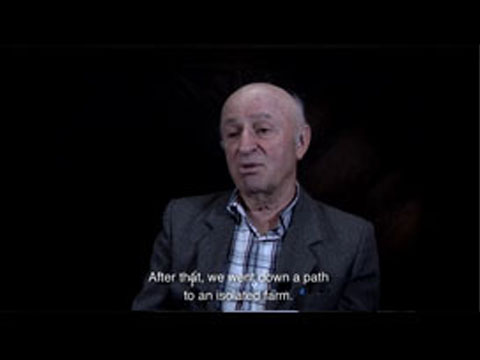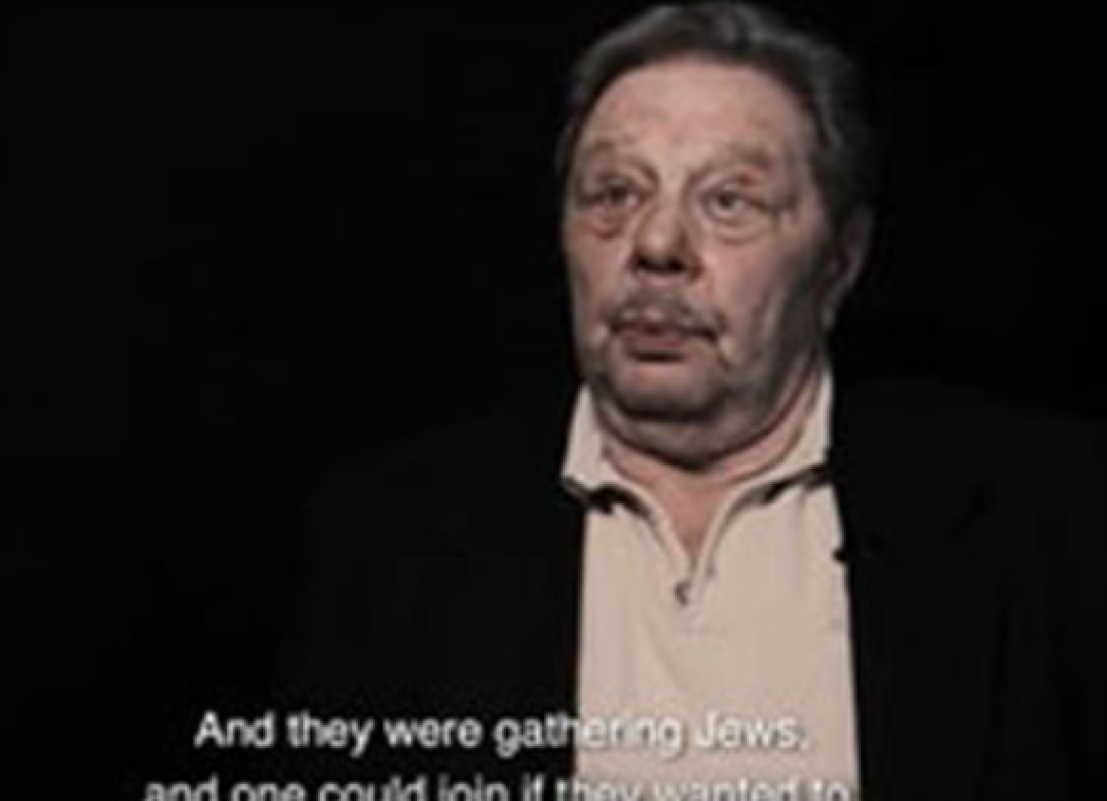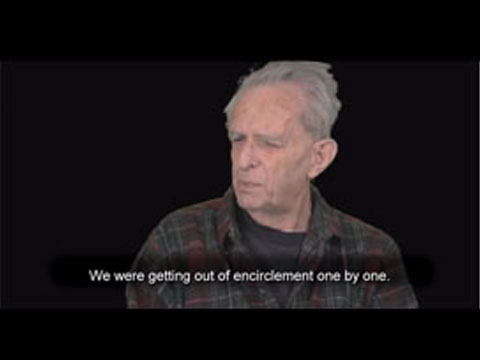
Vladimir Shekhtman
March 24, 1927 Vitebsk, Belarus
Interviewed In: Toronto, Ontario
“To make my story short, I had to draw the fire upon myself”
Radio Operator And Paratrooper Ukrainian Front, Leningrad, Liberation Of Vienna.
Zinovi was drafted in October 1943: “I was 17.5 years old. I was drafted to the army; it was just a regular army draft. I got to Estonian reserve rifle regiment stationed in the Urals. I stayed there for 3 months. As I had left during my third year at the Communications College, I was sent to radio operators’ platoon. That’s where I started learning the Morse code. In February we were transferred from the regiment to Leningrad Front. That’s where I, among others, was sent to 55th Guards artillery brigade.” Zinovi was not involved in direct combat during The Siege of Leningrad. As a radio operator he helped coordinate the artillery’s firing positions: “I was a radio operator. There were 2 radio operators’ squads in the platoon. They had 2 reconnaissance squads and 2 radio operators’ squads. During a combat one squad was at
the regiment’s look-out station and was directly involved in fighting, while we did the correction of fire”.
Zinovi was soon sent to Estonia, where he was on the front lines at Narva and and Balaton:
“The first combat I was involved in was the battle of Narva, Estonia, close to the Russian border. It was an unsuccessful winter offensive. It involved being exposed to direct fire. So the first one failed. The matter was, the Germans were on the sloping bank of the river, while we were facing a precipice. Therefore we had to get down in order to force a crossing over the river. There is a town near Balaton, named Székesfehérvár where I was contused. The combat activities near Balaton were very serious.”
After Estonia, Zinovi’s unit was formally integrated into Konev’s Ukrainian Front and went to fight in The Battle of Vienna:
“When we were near Vienna, our infantry units suffered great losses, very few men having survived. To be honest the commanders didn’t spare men. And an airborne division was sent to reinforce our troops we joined the airborne brigade, we had to learn to use the parachutes.”
He was close to Budapest when the war ended:
“It was 20 to 30 km away from Budapest. There was a convent there. Monks were guarding the convent. One of the radio operators’ squad went to the convent where they found a beautiful garden with a beautiful vineyard, while the other squad stayed here to maintain communications. That was where my army service was finished”
Zinovi worked as a teacher at a communications college in Kirov before immigrating to Canada.

March 24, 1927 Vitebsk, Belarus
Interviewed In: Toronto, Ontario

March 24, 1927 Vitebsk, Belarus
Interviewed In: Toronto, Ontario

Born June 27 1923.
Interviewed In: Toronto, Ontario
Medals Awarded: Order of the Patriotic War (1st and 2nd Class), Order of the Red Star, Medal for Battle Merit, Medal for Courage, Liberation of Riga and Victory over Germany In The Great Patriotic War